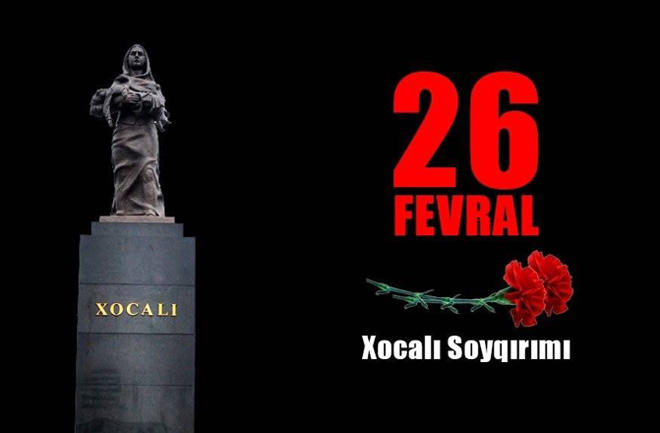BAKU, Azerbaijan, February 28. The Azerbaijani embassy in Morocco held an event marking the 31st anniversary of the Khojaly genocide jointly with the Office of the Commissioner for Human Rights (Ombudsman) of Azerbaijan, Trend reports.
The tragedy became one of the bloodiest pages of the ethnic cleansing policy carried out by Armenian nationalists against the Azerbaijani people. During the first Karabakh war, on Feb. 25-26, 1992, the Armenian Armed Forces, supported by the 366th infantry regiment of Soviet troops, stationed in Khankendi city, committed an act of genocide against the population of the Azerbaijani town of Khojaly. As many as 613 civil residents, including 63 children, 106 women, and 70 old people were killed in the massacre, 1,000 people were injured, and 1,275 were taken, hostage.
According to the embassy, the event held in Morocco’s Rabat was attended by Ambassador of the Republic of Azerbaijan to the Kingdom of Morocco Nazim Samadov, Commissioner for Human Rights (Ombudsman) of Azerbaijan Sabina Aliyeva, ombudsmen of the Republic of Türkiye, representatives of Moroccan universities, President of the Morocco-Azerbaijan Friendship Union Mohamed Faguiri, and members of the association, as well as accredited ambassadors, employees of embassies of various countries, and local media representatives.
The event began with a minute’s silence in memory of the Khojaly victims. Ambassador Samadov briefed on the Khojaly genocide, expressed gratitude to the states and international organizations that demonstrated solidarity with the Azerbaijani people. He stressed that as a result of relevant activities, the legislative bodies of states, as well as international organizations, adopted decisions and resolutions condemning this genocide.
Ombudsman Aliyeva underscored that the Khojaly genocide is one of the most horrific crimes against humanity, which resulted in the brutal death of hundreds of innocent people. She also touched on the Armenian landmine-planting policy against Azerbaijan during the occupation period of its lands, raised the issue regarding the fate of 3,890 Azerbaijanis who went missing during the first Karabakh war, and talked about sending a relevant application to international and regional human rights organizations, on the occasion of the Khojaly genocide's anniversary.
A film about the Khojaly genocide was shown, a photo exhibition on this tragic event was presented as well.
In addition, information about the Khojaly genocide appeared in the Moroccan media.






